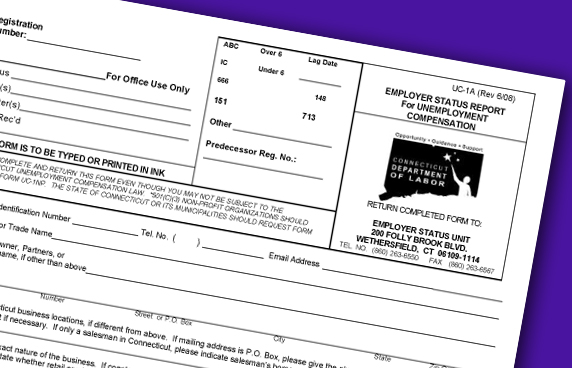State Won’t File for Unemployment Tax Waiver

The state Labor Department has decided not to file for a federal waiver that could have provided Connecticut employers with much-needed relief from some of the highest unemployment compensation taxes in the nation.
Last week, CBIA hand-delivered a letter to the labor commissioner requesting the state to apply for the waiver that would have helped employers being hit with an impending additional unemployment tax (on top of the already scheduled increase) this year.
It’s all because Connecticut still hasn’t fully repaid the nearly $1 billion it borrowed from the U.S. to keep the system afloat after the recession hit.
Even though the state borrowed the funds, Connecticut businesses are the ones who have to pay it back as the sole providers of the Unemployment Compensation Trust Fund.
Each year the debt balance isn’t paid in full the federal government increases the taxes charged to Connecticut businesses.
We’re one of the few states that still haven’t fully repaid their loan to the federal government, meaning employers’ federal unemployment taxes continue to rise each year.
Beginning the fifth year the debt isn’t fully repaid, states get hit with an additional “tax on the tax,” called the Benefit Cost Rate (BCR) add-on charge. This is the sixth year Connecticut's debt has not been fully repaid.
However, a state can apply for a waiver from the charge, which the feds will typically grant if the state’s unemployment debt hasn't worsened.
Last year, nine states or jurisdictions faced the threat of the BCR add-on and only Connecticut failed to apply for the waiver. As a result, employers here paid the highest federal unemployment compensation taxes in the nation ($161 per employee).
Connecticut had the chance to avoid making the same mistake twice, to help minimize the increase in federal unemployment taxes to be paid by Connecticut businesses in the coming year.
How would the waiver help? It could have provided short-term relief to the federal unemployment tax burden faced by Connecticut employers.
For example:
- $42 per employee is what businesses in states with no federal debt (including New York, Massachusetts, and Rhode Island) are paying in federal taxes
- $196 per employee in federal unemployment taxes is what Connecticut businesses will pay as a result of the state's failure to apply for the waiver this year
- But if we had applied for the waiver and were approved, businesses would have instead paid $147 per employee—some relief.
Of course, state lawmakers had the opportunity to provide significantly more unemployment tax relief for businesses this past legislative session but chose not to act on it.
In fact, officials from the Labor Department opposed every bill that would have made reasonable unemployment benefit reductions to promote the trust fund’s solvency.
Connecticut has historically avoided making the same benefit adjustments made by our neighboring states, but officials routinely wonder why our fund is insolvent despite taking in the same amount of revenue as those other states.
Some insist the only solution is more revenue (that is, taxes on businesses), which will only make doing business in Connecticut, already one of the most expensive in the country, even more expensive.
Lawmakers and Labor Department officials should adopt the benefit changes made by other states in order to ensure a healthy Unemployment Compensation Trust Fund and to free more resources so employers can create more jobs.
For more information, contact CBIA’s Eric Gjede at 860.244.1931 | eric.gjede@cbia.com | @egjede
RELATED
EXPLORE BY CATEGORY
Stay Connected with CBIA News Digests
The latest news and information delivered directly to your inbox.


